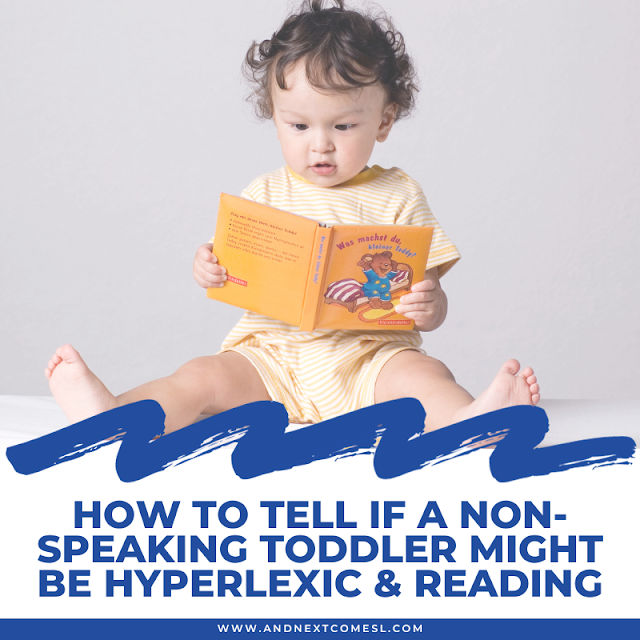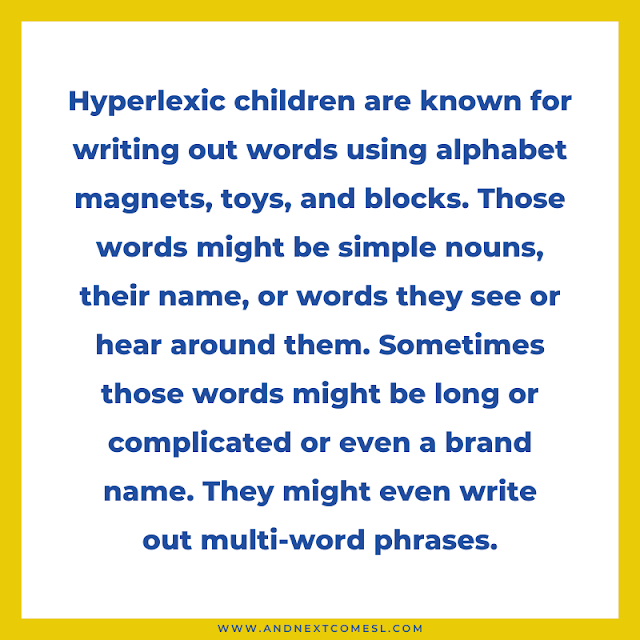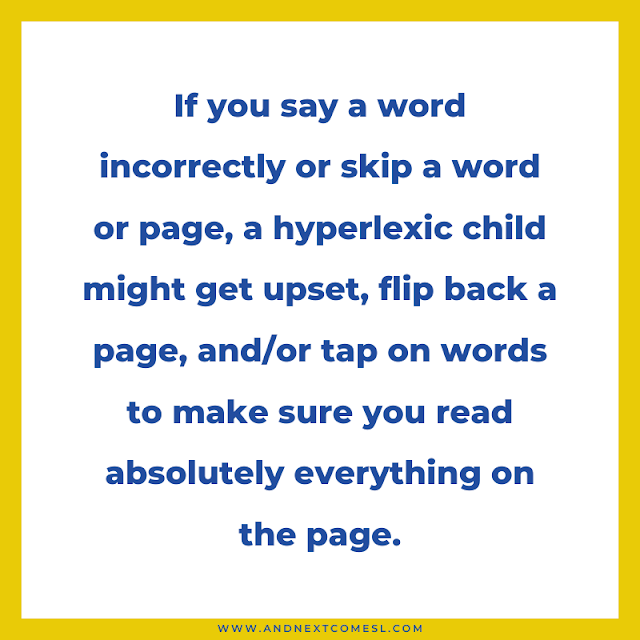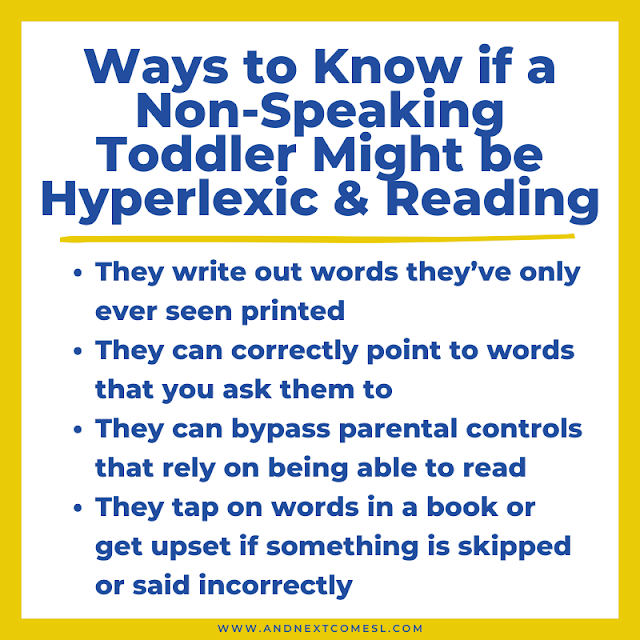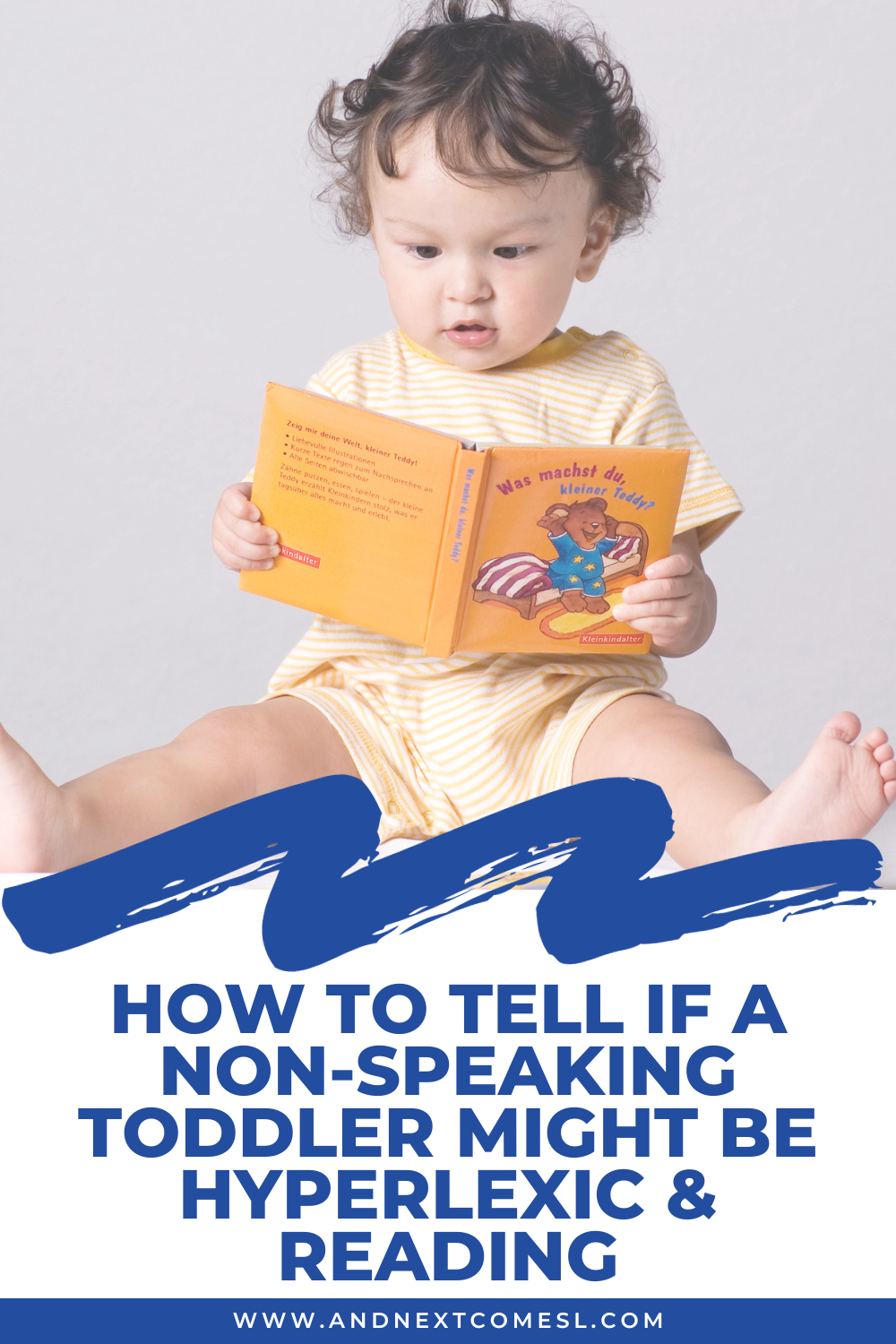When a toddler or preschooler can communicate using spoken words, it's pretty easy to determine whether or not they can read. After all, you can hear them verbalize the words they see while reading.
But how can you tell if a non-speaking toddler might actually be reading or decoding? It can be a bit trickier to determine.
However, perhaps you've already noticed many of the other telltale traits of hyperlexia in toddlerhood, but you're just not 100% sure if your child is actually reading or not yet.
And you already know that the early reading ability is a key trait of hyperlexia. This trait has to be present in order for your child to be considered hyperlexic.
So how do you know if your child is actually reading or not?
Well, I imagine you already have a strong suspicion that your child is hyperlexic and reading. There's a reason you're here reading this after all.
So we're going to take a look at a few different ways to know if they're able to decode and read that don't rely on using spoken words. Then hopefully you can have a better idea of whether or not your non-speaking toddler might indeed be hyperlexic and reading.
4 Ways to Know if a Non-Speaking Toddler Might be Hyperlexic & Reading
Based on conversations with other families over the years, here are some of the ways in which parents discovered that their non-speaking child was hyperlexic and able to read.
1. They write out words they've only ever seen printed
Hyperlexic children are known for writing out words using alphabet magnets, toys, and blocks.
Those words might be simple nouns, their name, or words they see or hear around them. Sometimes those words might be long or complicated, such as dinosaur name, or even a brand name, such as Huawei or Pixar. They might even write out multi-word phrases.
But sometimes they'll write out words they've only ever seen printed in a book, on TV, in captions, on road signs, or elsewhere around them.
So if you notice your non-speaking child writing out words you know they've only seen printed, then that's a good sign that they might be reading and could be hyperlexic.
2. They can correctly point to words that you ask them to
You might already suspect that your child can read so let's say you write down some words or grab a set of flashcards.
What happens when you ask your child to point to the card that says a specific word?
Can they point to the correct word?
Well, that's exactly how many families have discovered that their non-speaking child can in fact read.
It's also how many families have noticed the scope of their hyperlexic child's reading abilities, regardless of whether they are non-speaking or not. I know I quizzed my son this way too because I had to make sure what I was witnessing applied to other words as well (it did, obviously).
The words you ask them to point to could be unfamiliar words, long and complex words, or even nonsense words. Doesn't matter. The child will likely still point to the correct words that you ask them to point out.
3. They can bypass parental controls that rely on being able to read
Many apps designed for kids have a parental control feature that relies on being able to read or solve a simple math equation before they can access the settings.
Well, oftentimes, young hyperlexic children can read those and enter the correct answer. Sometimes even in different languages!
So if you've noticed that your child can access settings that are locked behind some kind of parental control feature, there's a good chance they're able to read what it said. After all, they were able to complete the basic instructions to bypass it...
4. They tap on words in a book or get upset if something is skipped or said incorrectly
When you're tired and want to quickly read through a book with your child, you might be tempted to skip over some words or pages to speed things along. (We all do it. Don't deny it.) Well, that might work with neurotypical toddlers or preschoolers.
However, you can't get away with that when reading with a hyperlexic toddler who can follow all the words and read along...
If you say a word incorrectly or skip a word or page, a hyperlexic child might get upset, flip back a page, and/or tap on words to make sure you read absolutely everything on the page.
🔎Is it Hyperlexia?
You've seen the signs: the letters, the early reading, the unique way they learn. Now to find out if hyperlexia is the name for what you've been seeing and finally make sense of it all.
Final Notes on Discovering Your Non-Speaking Child's Hyperlexia & Reading Ability
Often, many parents have a gut feeling that their non-speaking child is indeed reading. They just "know," in their heart, that the child is likely hyperlexic. I'm a big believer in trusting your gut.
However, it's also nice to have more concrete evidence (and validation!), whether that's with words spelled out of letter magnets on the fridge or quizzing your child to see if they can point to the correct words. That's how many families have discovered their child's reading ability.
It's also worth noting that that concrete evidence is what will be useful to bring up in appointments with professionals when discussing hyperlexia. So it's good to know what to watch for.
Obviously, there are other things that you may have noticed along the way that aren't on this list.
The point here, though, was to give you an idea of how other families have discovered that their non-speaking toddler was hyperlexic and reading. That way it could be helpful to you as you navigate this (pretty wild!) journey.


